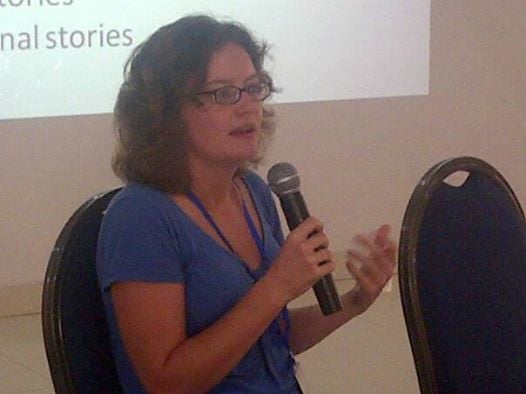Posted on February 26, 2014

Dr Cori Wielenga
|
The Summit, which took place between 10 and 19 February, coincided with the start of the 20th commemoration of the genocide, making it a particularly pertinent time to reflect on reconciliation in Rwanda. The event, which falls under the umbrella of the Global Alliance for Ministries and Infrastructures of Peace (GAMIP), brought together peace practitioners from around the continent and focused on “educating our communities for peace”. The discussion centred on what infrastructure (curricula, approaches, courses) could be incorporated into our education systems to help us work towards building more peaceful societies. |
|
In this context, there was ample opportunity to engage with the many Rwandan peace-builders who were there, including members of Rwanda’s much criticised National Unity and Reconciliation Commission (NURC). The NURC has been accused by various scholars of being an instrument used by government to indoctrinate Rwandans into accepting an ideologically loaded version of Rwanda’s history, interpretations of the genocide and ways in which the country can reconcile. It has been commended by others for being the world’s first permanent institution dedicated to reconciliation. The work of the NURC includes facilitating community dialogues, running ingando (“solidarity”) camps that ex-combatants, teachers, lecturers, students and a range of other Rwandans need to attend, and organising district forums to which all local leaders and NGOs are encouraged to belong. The NURC has used Rwanda’s highly organised governance system – the same highly centralised system that allowed the genocide to be so effective – to reach all the corners of the country with their message that “there is no longer Hutu and Tutsi; we are all Rwandan”. During my visits to Rwanda over the past 10 years – and having engaged with the critical academic literature on the topic – I have been sceptical about the approach the NURC has taken and the possibility that what appears to be an authoritarian indoctrination campaign could facilitate reconciliation. But for all my scepticism, I have observed a significant shift in the atmosphere in Kigali in the past 10 years. Where, in 2005, people I spoke to seemed afraid to say what they really thought and government officials seemed uncomfortable answering critical questions, last week I felt free to ask whatever I wanted and received candid and honest responses. Policies and legislation seem to be becoming more restrictive: in 2013, for example, a new and problematically vague law on so-called genocide ideology was passed that punishes deliberate acts that lead to the incitement, negation, minimisation or justification of genocide. However, my experience of communities and ordinary Rwandans suggests that people are becoming more relaxed and open. Critical conversations regarding government policies and changes in the country are increasing as people become more confident about the state of security and begin to heal from their horrific past. Although we should remain sceptical and vigilant concerning the actions (and motives) of governments, especially in the area of post-conflict recovery, I believe the Rwandan context is particularly complex and has been largely misunderstood by outside researchers who have consistently interpreted events through a non-African lens. The more immersed I become in the context, the more nuanced my interpretations become and the more I question the academic literature which seems to reflect a very narrow and limited perspective. Rwanda asks us to re-examine our assumptions. The actions of genocidaires during the genocide surpass all human understanding, but so do the actions (or lack of thereof) of the international community. In the post-genocide context, the ability of Rwandans to rebuild their country is similarly astounding, and a multitude of unlikely stories of healing and forgiveness are beginning to emerge. Before writing the current government off as a dictatorial regime that is leading the country to another genocide, as some critics would have us believe, it may be worth keeping an eye on the progress of this country – not only in terms of development, but also in terms of reconciliation. |
|
Copyright © University of Pretoria 2025. All rights reserved.
Get Social With Us
Download the UP Mobile App